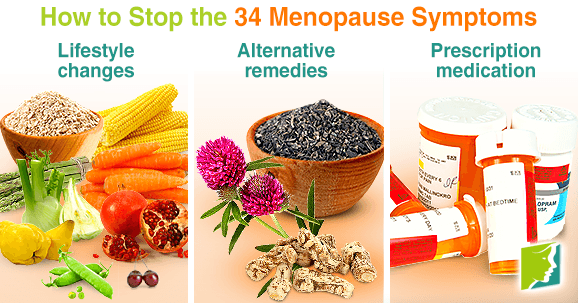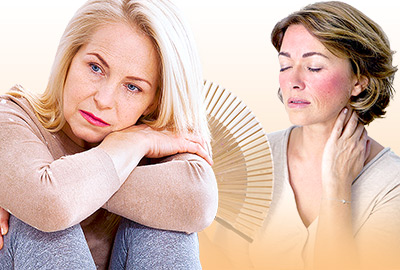Although menopause is not a disease and does not need to be treated or diagnosed on its own, it can cause many different symptoms, which can be painful, frustrating, and lower the quality of a woman's life. It can be hard to find a worthwhile treatment for these symptoms, since treatments do not always work the same on different women.
Ways to Reduce Menopause Symptoms
Menopause symptoms are usually caused by decreasing estrogen levels during menopause, but this is not always the case. For example, fatigue can also be caused by night sweats that disturb a woman's sleep, or conditions like fibromyalgia or sleep apnea, which are not caused by hormone changes, but happen more frequently to menopausal women. Therefore, it is important to consult a doctor if your symptoms are altering your quality of life. A doctor will be able to review your symptoms and rule out any underlying conditions that may be causing them.
Lifestyle changes
Regular exercise, following a healthy diet, and maintaining a healthy weight can also help reduce some menopausal symptoms. Women going through menopause are at a higher risk for bone fractures and breaks, so incorporating low-impact workouts such as swimming and yoga are important.
Alternative remedies
Many women also find herbal supplements - such as black cohosh, red clover, and dong quai - to be helpful. However, there is little scientific research or evidence that these herbal supplements reduce menopausal symptoms.
Prescription medication
The most common prescription for menopause symptoms is hormone replacement therapy (HRT).It was widely prescribed to women until 2002, when a large study on being done on postmenopausal women was halted because it was endangering the lives of the women within the study. However, the study was done on older women, focused on only specific types of hormone replacement and in specific doses.
HRT can raise a woman's risk of heart disease, strokes, blood clots, and breast cancer. Therefore, if a woman is already at risk or has one of these conditions, she should not use hormone therapy.
Although HRT has its risks, it is widely recommended to women with moderate to severe menopausal symptoms such as hot flashes, night sweats, vaginal dryness, and mood swings. HRT is the most effective treatment for these menopause symptoms.
Vaginal dryness is also a common problem during menopause, and it is usually treated with low dose estrogen replacement that is applied directly to the vagina. Vaginal moisturizers and lubricants that do not contain estrogen can also be used. Antidepressants can also be prescribed for mood swings, depression, or other psychological conditions that may happen during menopause.
If your menopausal symptoms are lowering your quality of life, it is important to see a doctor who will be able to help you find a treatment plan that works for you.
Sources
- National Health Service UK. (2014). Menopause - treatments. Retrieved October 1, 2015, from http://www.nhs.uk/Conditions/Menopause/Pages/Treatment.aspx
- Office on Women's Health. (2010). Menopause basics. Retrieved October 1, 2015, from http://www.womenshealth.gov/menopause/menopause-basics/index.html




